Assistant Professor
NOMIS Center for Immunobiology and Microbial Pathogenesis

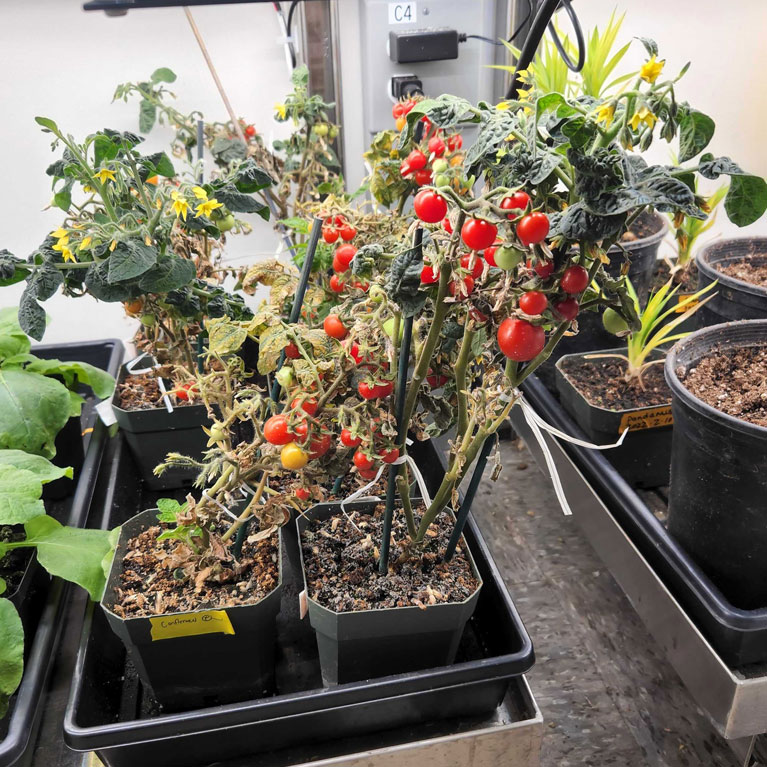
Food allergies are on the rise globally, yet much remains unknown about how and why they develop. Every day, our diet exposes us to thousands of molecules that can impact our health in both beneficial and harmful ways. The intestinal immune system must constantly survey these dietary inputs to allow for nutrient absorption while also preventing pathogen invasion. In most cases, the body develops oral tolerance, a state in which intestinal immune cells actively recognize the dietary proteins as safe. However, failure to develop this tolerance can lead to life-threatening food allergies. Despite its critical importance, most of what scientists know about oral tolerance comes from a limited number of studies on a single protein found in eggs. Blum is working to change that.
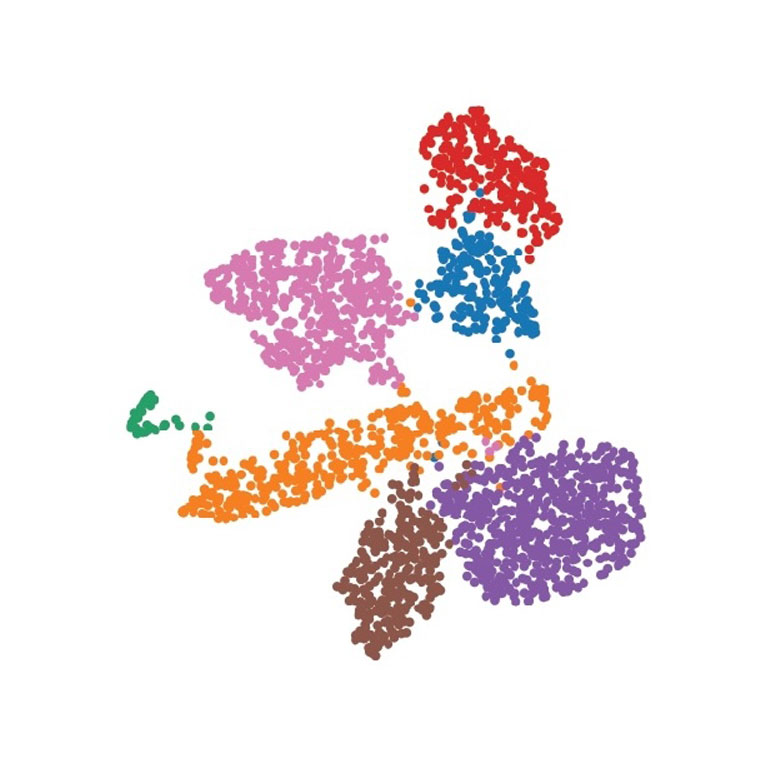
While traditional food allergy research focuses on the molecules involved in allergic reactions, Blum’s lab is taking a new approach by exploring the mechanisms of oral tolerance, the immune system’s default, noninflammatory reaction to most foods. By understanding the molecular signals that help our bodies tolerate most foods, Blum’s work could enable entirely new immunotherapy strategies for preventing or treating food allergies.
Notably, Blum’s findings show that individual dietary proteins are often insufficient to drive an allergic reaction. The lab is actively identifying adjuvants—food molecules that co-occur with dietary proteins and play a critical role in determining whether the immune response will be tolerogenic or inflammatory. This integrated approach of mapping both dietary protein antigens and other co-occurring molecules addresses key challenges in understanding why some foods induce tolerance while others provoke allergy. To accomplish this, Blum’s lab uses cutting-edge tools including high-throughput T cell receptor screening, antigen mapping, and in vivo tracking of immune responses in mouse models.
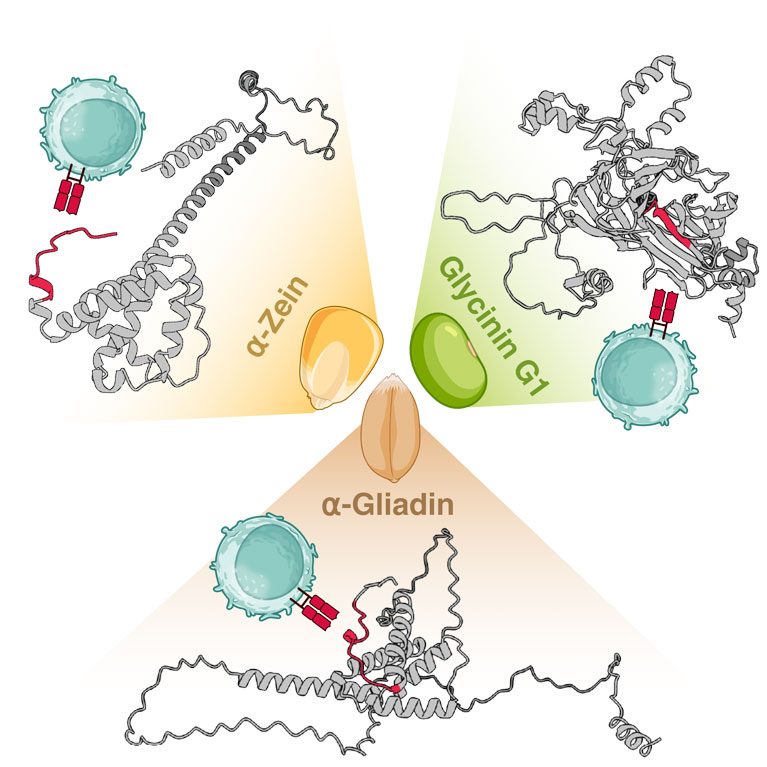
Blum discovered the first dietary antigens from staple crops corn, soy, and wheat.
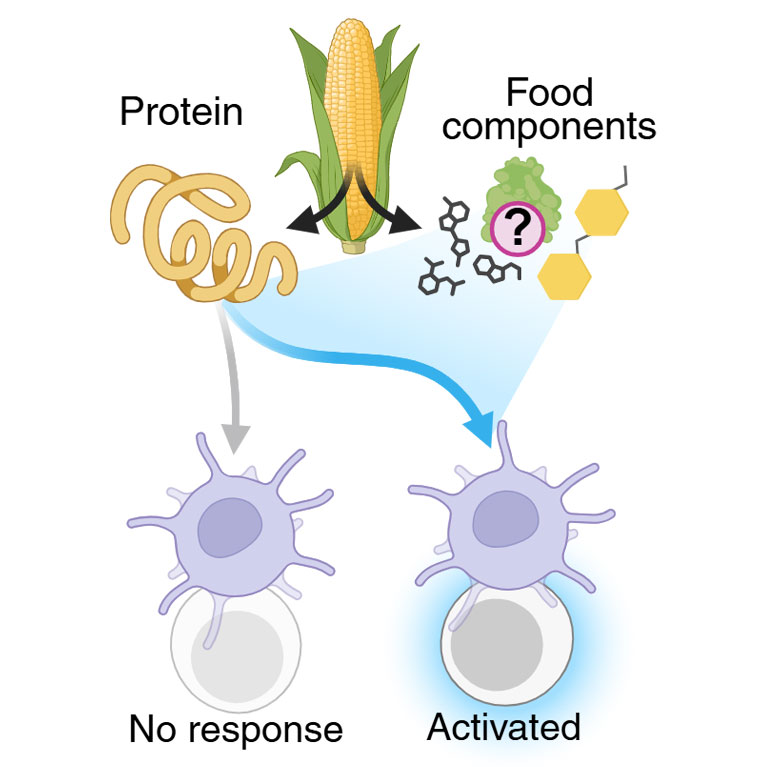
Blum showed that food tolerance is not only driven by the presence of individual dietary proteins but also depends on the gut microbial context and the food’s broader molecular matrix.
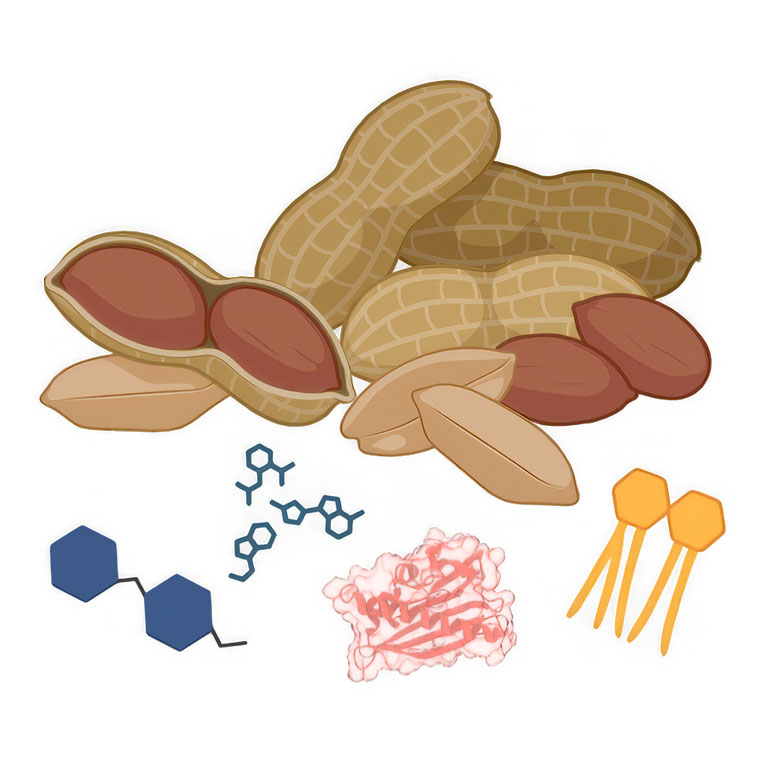
Blum established that peanut exposure can provide adjuvant activity, enhancing the body’s immune response to unrelated co-exposed antigens.
BS, Human Biology, Cornell University, Ithaca, NY
PhD, Molecular Nutrition, Cornell University, Ithaca, NY
Postdoctoral Fellow, Chemical Engineering, Stanford University, Palo Alto, CA